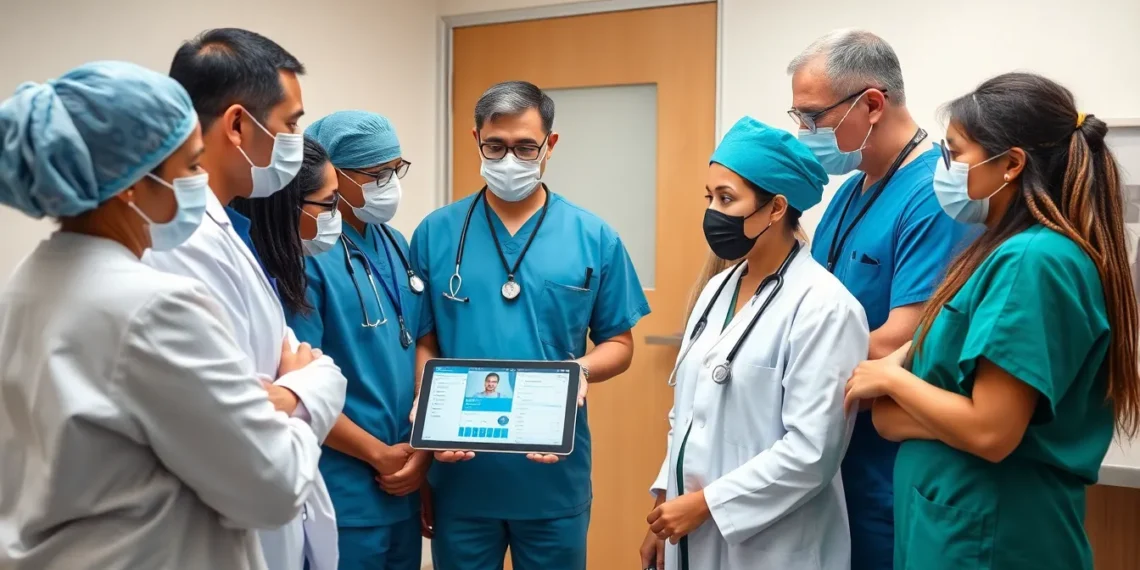In a world where viruses seem to throw surprise parties and cancer cells crash the party, the intersection of COVID-19 and immuno-oncology presents a complex puzzle. Picture this: while scientists race to understand how the coronavirus disrupts our immune defenses, they’re also tackling the challenge of ensuring cancer treatments don’t take a backseat. It’s like juggling flaming swords while riding a unicycle—exciting but a bit precarious.
As the pandemic reshapes healthcare landscapes, the stakes couldn’t be higher. Patients battling cancer find themselves navigating a maze of risks and uncertainties. The fight against COVID-19 isn’t just about masks and vaccines; it’s about maintaining the delicate balance of immune responses that can either fend off the virus or leave patients vulnerable. Buckle up as we dive into the immuno-oncological challenges posed by this global health crisis and explore how science is rising to the occasion.
The Immuno-Oncological Challenge of COVID-19
COVID-19 poses significant challenges for individuals with cancer. The intersection of these two health crises demands attention and nuanced understanding.
The Impact of Covid-19 on Cancer Patients
Cancer patients face heightened risks during the COVID-19 pandemic. Vulnerability to severe illness increases due to compromised immune systems. Studies show a higher mortality rate for cancer patients infected with COVID-19, with estimates suggesting a 30% increased risk. Anxiety over delayed treatments and hospitalization adds emotional strain. Consequently, healthcare access becomes critical for these patients, as disruptions in care can negatively affect outcomes.
Changes in Cancer Treatment During the Pandemic
The pandemic has forced adaptations in cancer treatment protocols. Numerous clinics shifted to telehealth services, ensuring continuity of care while minimizing exposure risks. Treatment delays emerged as clinics prioritized urgent cases. According to cancer experts, nearly 40% of patients experienced postponed therapies. Additionally, clinical trials faced significant interruptions, impacting the development of new treatments. As a result, oncologists began exploring alternative treatment strategies to maintain patient safety without compromising therapeutic efficacy.
Immuno-Oncology Basics

Immuno-oncology integrates the immune system and cancer treatment strategies, focusing on how the body’s defenses can combat cancer. Continued research reveals critical insights into this evolving field.
Introduction to Immunotherapy
Immunotherapy utilizes the body’s immune system to recognize and destroy cancer cells. It includes various treatment modalities, such as monoclonal antibodies and immune checkpoint inhibitors. Individuals receiving immunotherapy often report fewer side effects than traditional treatments, like chemotherapy. Approved therapies have shown promise, demonstrating significant improvements in patient outcomes. Personalized approaches in immunotherapy tailor treatments to individual characteristics, enhancing efficacy. Researchers continuously explore combinations of existing therapies to maximize benefits for cancer patients, especially amidst challenges from COVID-19.
Role of the Immune System in Cancer
The immune system plays a vital role in identifying and eliminating cancer cells. It consists of various components, including T cells and natural killer cells, which directly target tumor cells. Patients with weakened immune systems face increased vulnerability to cancers due to inadequate immune responses. Tumors can develop mechanisms to evade immune detection, complicating treatment outcomes. Balancing immune activation and suppression becomes essential for effective cancer therapy. With COVID-19’s emergence, understanding these interactions aids in prioritizing patient safety during treatment planning. Continuing research sheds light on how immune responses could influence cancer progression in infected patients.
The Immuno-Oncological Challenge of Covid-19
COVID-19 has significantly impacted patients with cancer, presenting unique challenges that require careful navigation.
Effects of Covid-19 on Immune Response in Cancer Patients
COVID-19 can disrupt the immune response, particularly in patients with cancer. Weak immune systems hinder their ability to fight infections, heightening the risks associated with the virus. Data reveals that cancer patients face a higher mortality rate from COVID-19 compared to the general population. Inflammatory responses may exacerbate complications for those undergoing immunotherapy or other treatments. Compromised immunity complicates cancer care, making it essential for healthcare providers to understand these interactions. Emerging research continues to highlight how the virus alters immune dynamics, directly impacting treatment outcomes.
Challenges in Treatment and Management
Adapting cancer treatment during the pandemic proves difficult for healthcare providers. Many patients experience postponed therapies, with nearly 40% reporting delays that can affect disease progression. Virtual consultations and telehealth services emerged as essential tools, helping maintain continuity of care despite the risks associated with in-person visits. Oncology practices adapt protocols, yet access to clinical trials dwindles, limiting options for patients. Quality and timely treatment become imperative for improved patient outcomes, necessitating innovative strategies to balance health and safety during this unprecedented time.
Current Research and Findings
Research aims to understand the impact of COVID-19 on cancer patients and treatment strategies. Ongoing studies highlight crucial insights into how the virus affects individuals with existing malignancies.
Studies on Covid-19 and Cancer
Numerous studies explore the intersection of COVID-19 and cancer. One study conducted by the American Society of Clinical Oncology noted that cancer patients face increased susceptibility to severe COVID-19 outcomes. Findings suggest that patients undergoing active cancer treatment are particularly vulnerable, experiencing a greater risk of respiratory complications. A systematic review examined various cancers and found a marked correlation between cancer type and COVID-19 severity. Additionally, studies emphasize the need for tailored vaccination protocols for these patients, as their immune systems may not respond effectively to standard doses.
Outcomes for Cancer Patients with Covid-19
Outcomes for cancer patients infected with COVID-19 indicate a higher mortality rate. A significant cohort study demonstrated that patients with hematologic malignancies, such as leukemia and lymphoma, exhibit especially poor outcomes compared to those with solid tumors. Another analysis showed that nearly 30% of cancer patients who contracted COVID-19 required intensive care. Delays in cancer therapies due to the pandemic contributed to deteriorating health for many. Access to supportive care and timely medical interventions remains critical to improving patient survival rates during this unprecedented time.
Strategies for Addressing the Challenge
Addressing the immuno-oncological challenges posed by COVID-19 requires targeted strategies to support cancer patients during the ongoing pandemic.
Enhancing Immunotherapy during the Pandemic
Innovative approaches focus on optimizing immunotherapy protocols to ensure patient safety. Modifications in treatment schedules enable healthcare providers to minimize exposure risks. Adapting dosages may enhance therapeutic effects while sidestepping complications from COVID-19. Oncologists also explore combining immunotherapy with antiviral treatments, which might provide dual benefits. Research continues to evaluate the efficacy of existing immunotherapies in patients affected by the virus. The integration of telehealth not only allows for continued patient monitoring but also facilitates timely adjustments to treatment plans.
Supportive Care for Cancer Patients
Supportive care plays an essential role in managing the overall well-being of cancer patients during the pandemic. Increased access to mental health resources addresses the emotional challenges these individuals face. Nutritional support programs help maintain physical health and boost immune function. Palliative services ensure comfort and quality of life, which remains crucial as patients navigate treatment uncertainties. In-person visits are complemented by virtual consultations, promoting timely access to necessary care while adhering to safety protocols. Enhanced communication about treatment options fosters informed decision-making, empowering patients in their care journey.
Conclusion
The immuno-oncological challenges posed by COVID-19 have reshaped the landscape for cancer patients and healthcare providers alike. As research continues to evolve, understanding the interplay between the virus and immune responses remains critical. The need for tailored treatment strategies and innovative approaches is more pressing than ever.
By prioritizing patient safety and ensuring access to necessary resources, the healthcare community can better navigate this complex scenario. Ongoing efforts to adapt treatment protocols and enhance supportive care will play a vital role in improving outcomes for cancer patients during these unprecedented times.















